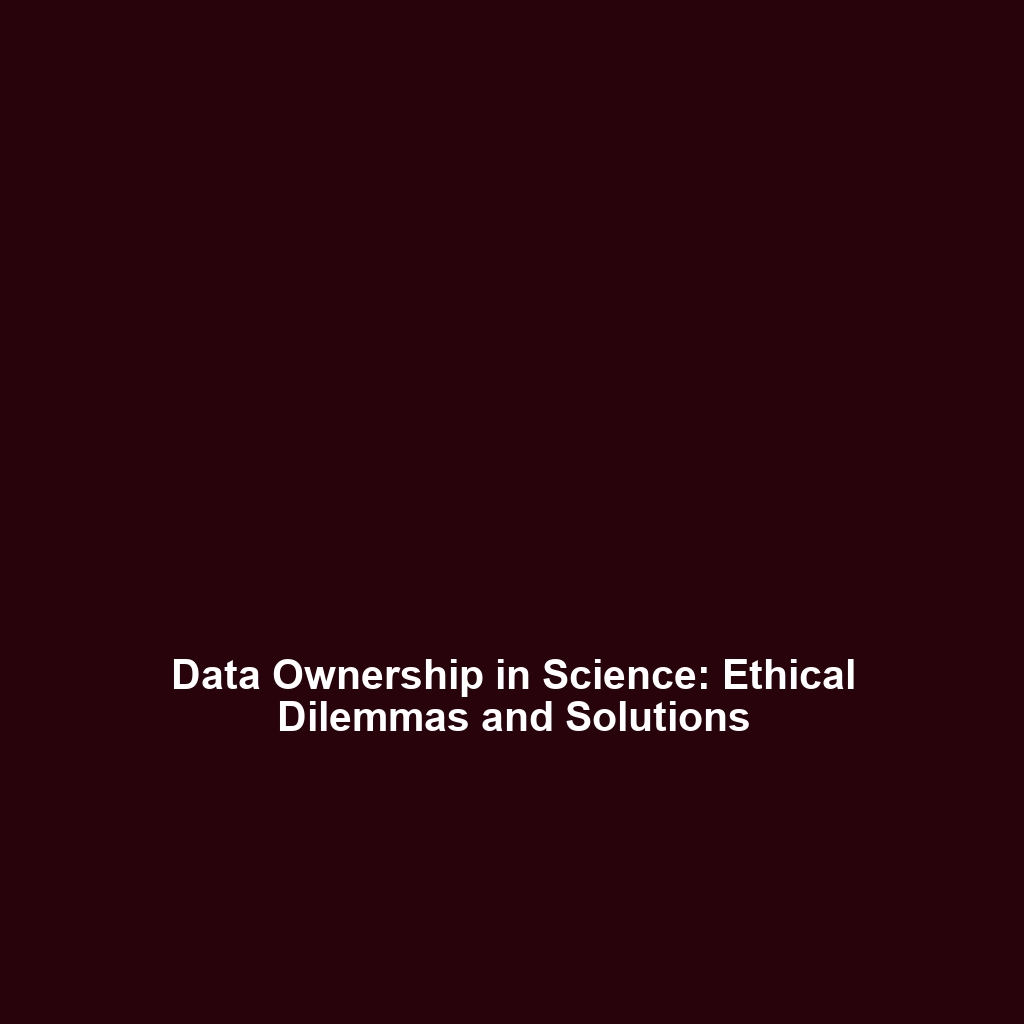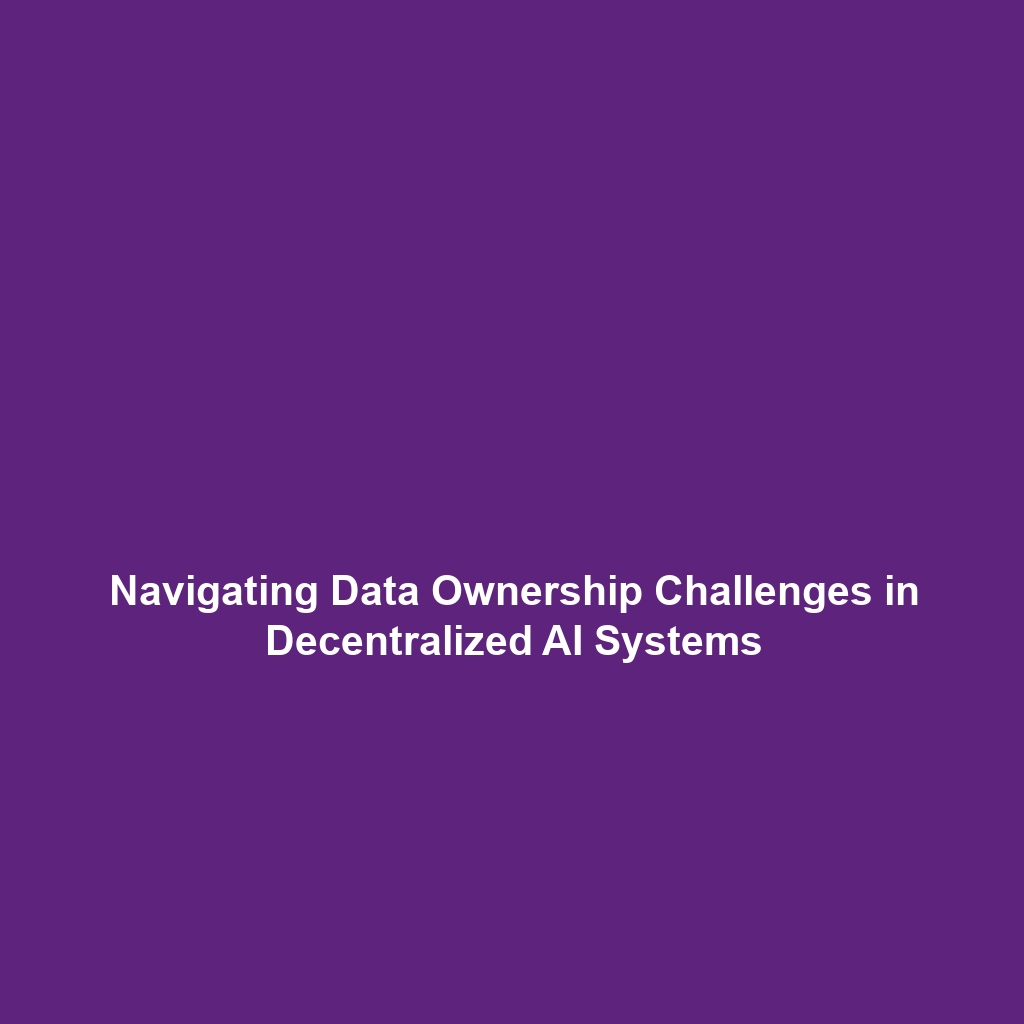Addressing Ethical Concerns About Data Ownership in Big Data Science
Introduction
In today’s data-driven world, ethical concerns about data ownership have emerged as a pivotal issue, particularly in fields where data sharing is critical for scientific progress. These concerns are magnified in the realm of Big Data in Science, as the accessibility and application of data play a crucial role in innovation and research. Addressing these ethical dilemmas is essential for fostering collaboration among scientists, improving reproducibility, and ensuring public trust in scientific endeavors. The discussion surrounding data ownership significantly influences the future of collaborative research and the responsible use of big data.
Key Concepts
Understanding Data Ownership
Data ownership refers to the legal rights and responsibilities associated with data generated during research. In the context of Big Data in Science, several key concepts come into play:
- Intellectual Property Rights: Protecting the ownership of data can result in restrictions on its use and sharing, which may hinder scientific collaboration.
- Data Sovereignty: Variations in legal frameworks across countries influence how data can be shared and utilized.
- Data Sharing Policies: Institutional policies that promote or deter data sharing impact the availability of data across the scientific community.
Applications and Real-World Uses
In the context of addressing ethical concerns about data ownership, various real-world applications showcase the significance of responsible data sharing:
- Genomic Research: Collaborative genomic studies leverage shared data to uncover genetic links to diseases, enhancing our understanding of genetics and public health.
- Environmental Monitoring: Data from climate models and sensor networks are often shared globally to track climate change and develop mitigation strategies.
- Public Health Initiatives: Sharing health data across institutions can inform strategies during health crises, such as outbreaks or pandemics.
Current Challenges
Despite the importance of addressing these ethical concerns, several challenges remain:
- Privacy Issues: Concerns about the privacy of individuals from whom data is collected can limit data sharing.
- Legal and Regulatory Barriers: Different jurisdictions impose various levels of restrictions on data ownership and sharing.
- Trust Deficiencies: A lack of trust in how data will be used can deter researchers from sharing valuable information.
Future Research and Innovations
Looking ahead, innovations in data governance and sharing practices are anticipated to address current ethical concerns. Notable areas for future research include:
- Blockchain Technology: Its potential to enhance data security and ownership tracking can foster confidence in data sharing.
- Advances in Anonymization Techniques: These could mitigate privacy concerns while enabling data sharing.
- AI-Driven Data Management: Techniques for responsibly managing access to shared datasets could revolutionize collaborative research efforts.
Conclusion
Addressing ethical concerns about data ownership is crucial for ensuring that Big Data in Science can fulfill its potential in advancing knowledge and innovation. By fostering a culture of responsible data sharing and respecting the legal rights of data creators, the scientific community can build trust and enhance collaboration. As we explore solutions to these ethical challenges, engaging with policymakers and researchers will be essential. For more insights on related topics, consider visiting our articles on data sharing policies and privacy risks in research.


